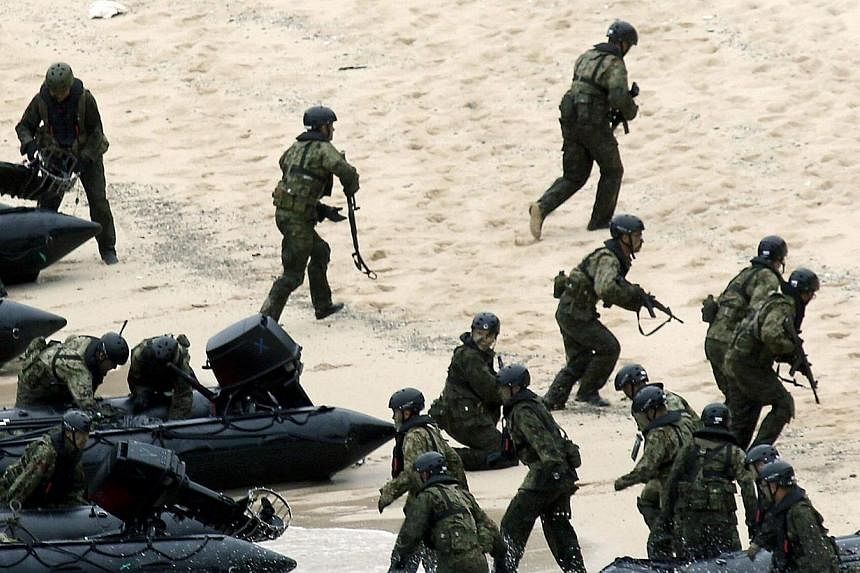TOKYO (AFP) - Tokyo on Friday was slapped with a lawsuit over its decision to expand the scope of Japan's military, a divisive shift for the pacifist nation that sparked protests at home and drew sharp criticism from China.
The legal action filed with the Tokyo District Court seeks to block a decision by Prime Minister Shinzo Abe's cabinet last week to reinterpret rules which have long banned the use of armed force except in very narrowly-defined circumstances.
Tokinao Chindo, 75, a former civil servant in western Mie prefecture, said the move violated Japan's war-renouncing constitution, prompting his lawsuit, believed to be the first such action.
"I hope other Japanese people will follow suit and file legal actions nationwide," Chindo said.
Following the change, Japanese troops would now be able to come to the aid of allies - primarily the United States - if they come under attack from a common enemy, even if Japan is not the object of the attack.
The dramatic shift comes amid soaring regional tensions with China centred on disputed islands in both the South China and East China seas. Beijing warned against the move, saying it opens the door to remilitarisation of a country that is not sufficiently penitent for its actions in World War II.
However, Australia and the United States, which has long encouraged Japan to take on more of a role in a very lopsided defence treaty, backed the decision.
Abe's move has caused anger at home, where the pacifism on which the constitution is built is an article of faith for many Japanese. At least half the population opposes a more aggressive military stance, according to recent newspaper polls.
Following the historic decision, public support for Abe's cabinet slipped to below 50 per cent for the first time since he swept to power in December 2012.
The conservative Abe had originally planned to change Article 9 of the US-imposed constitution, which was adopted after World War II and renounces "the threat or use of force as means of settling international disputes". But unable to muster the two-thirds majority he needed in both houses and unlikely to get an endorsement from the public in the required referendum, he changed tack, opting to reinterpret the rules.

